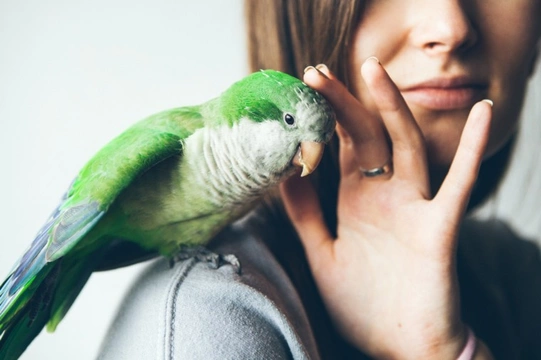
Bird Heart Attack Symptoms: Recognizing the Signs
Heart attacks in people don’t always look like the media would have us believe, with collapsing and clutching at the chest; they can also be subtle, slow in onset and quite different in terms of how they look and feel. The same is true of heart attacks in pet birds like parrots and parakeets, and of course, identifying what’s up with a pet can be a lot harder than with a person as they can’t talk to you and explain how they feel or what’s wrong.
Heart attacks in parrots and parakeets can be sudden and acute and leave you feeling helpless as there’s nothing that you can do, or they might be slow and yet so subtle you can miss the signs when it is still early enough to help them.
Knowing what type of birds are at higher risk of heart attack can help you to remain vigilant, and while they’re equally likely to occur in more or less any pet bird species, it is female birds that tend to succumb to heart attack more than males.
Parrots and parakeets that are overweight and so, at higher risk of heart disease are at higher risk of heart attack too and as you might expect, the risks increase exponentially as your bird gets older.
If you have any concerns please always speak to your vet as a matter of urgency; and if you’re wondering how you would know if your pet bird was having a heart attack in the first place, this article will outline some of the common symptoms. Read on to learn more.
Fainting or loss of consciousness
Fainting in birds should never be ignored or disregarded, even if your pet rallies quickly and seems fine afterwards. Fainting or losing consciousness, even for a few seconds, can be a symptom of heart attack in parrots, parakeets, and other pet birds.
Lethargy or lying prone
If your bird appears to be listless and slow to respond to you or entirely unresponsive, or they’re highly lethargic or lying on the floor of their cage in an unnatural position, this is a veterinary emergency and you should contact an experienced exotics vet as a matter of urgency.
A minor heart attack can involve a period during which the affected bird is lethargic or unresponsive, and this can also indicate the final and fatal stages of a more serious heart attack in progress too.
Birds don’t naturally lie prone on the floor of their cage and so this is a serious sign that they’re in too much pain or too weak to get up and that something is seriously wrong.
The feathers look unusual
Most parrot and parakeet owners can spot quickly if their bird’s feathers look a little odd, in terms of the way they hold them. If your bird’s feathers seem to be stuck out “staring” or fluffed up and this is not in response to external stimulus, this can mean many things, one of which being that there is something wrong.
Pale or blueish mucous membranes
Heart disease in pet birds can culminate in a heart attack, and this is a particular risk for birds that are overweight. However, as a bird’s heart disease progresses but before they have a heart attack, you might notice if you are vigilant and check carefully that the delicate skin around their eyes where it is visible next to their plumage might appear blue or purple-ish in colour, due to the poor circulation resulting from the advanced stages of heart disease.
Heart disease is not the only potential cause of this discolouration, but you should speak to your vet immediately if you notice it to give your pet the best chances of survival with prompt treatment.
A hard or swollen stomach
You might not think that a parrot or parakeet with heart problems would show symptoms relating to their stomach or abdomen, but sometimes this does occur. Swollen stomach in birds is a reasonably common occurrence because a wide range of things can cause it, including being overweight and being egg-bound.
However, a taut, hard, or swollen stomach in a pet bird can result from fluid accumulation that results from heart problems, so contact your vet if you have any concerns.
Can anything be done for a bird that has a heart attack?
Whether or not a parrot or parakeet that is having a heart attack can be saved or treated depends on a wide range of variables, and a huge part of this relies upon you spotting that something is amiss quickly and seeking qualified help in good time.
Time is of the essence when it comes to heart attacks in any animal species, so contact a specialist exotics vet immediately if you have concerns, to give your bird the best possible chances of recovery and if this is not possible, to ensure they’re made as comfortable as possible and don’t suffer undue pain at the end of their life.



